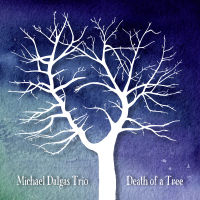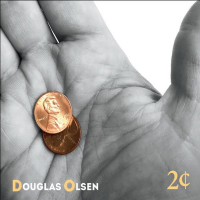Home » Jazz Articles » Album Review » Michael Dalgas Trio: Death of a Tree
Michael Dalgas Trio: Death of a Tree
"In 2010 I fell while having a friendly fight with a friend and broke both bones in the left forearm," Delgas told All About Jazz. "I had to go through surgery and have metal plates inserted. About a year after that I was on a skiing vacation where I crashed and broke both my wrists and needed surgery (again). I had never before in my life broken anything, so two accidents like that within a year was really crazy and frustrating. I had to work all over again on things I'd spent years mastering. I was still playing gigs but I was never satisfied with how it sounded or felt."
"Church Song" is like a false start, and probably too bland an opener in relation to many more engaging songs that follow. The neatly melodic "Flux" illustrates the rhythm section's skills with a bit of reverb from Lars Fill on keys and some of the record's most pronounced double bass work by Jasper Jagd. On "D.C." Dalgas employs swirling brushes on a piano based ballad which effectively conjures metropolitan musings.
This is definitely an album that can add enjoyment to an overcast day, and "Rain Song" shifts the mode from many similarly titled pieces to employ upbeat, pulsating keyboard accents which provide a subtle, echoing impact. "Motian" is a fitting homage to one of Delgas' primary influences.
Like a cinematic rosebud in Chinatown, there are many deep and meaningful feelings apparent in this recording. The album's title comes from a chestnut Dalgas grew and nurtured into a small tree during his childhood, hoping it would live for decades beyond him. Eventually the tree became diseased and died. Dalgas describes that story as somewhat banal, but he also acknowledges lasting emotions. That is not to say the record is a downer, by any means. A clear, calming sense of humanity emerges consistently to make the album quite serene.
"I feel I've grown immensely as a person during the time I was injured," reflects Dalgas. "I hope that shines through in my playing and my composing. I think it makes the music rather thoughtful." It does, indeed.
Despite this record's melancholy roots, there is an enduring sense of optimism which pulses clearly in many cuts. This is not the most swinging party-type music to be found, but upbeat tunes such as the closer, "Tranquillo," sound excellent for dancing with someone you care about, and holding them tight. Songs like that are well worth listening to, and there are more than a few of them here.
Track Listing
Church Song, Flux, D.C., Motian, The Huguenot's Song, Rain Song, Journey, Memento Mori, Postludium, Tranquillo
Personnel
Additional Instrumentation
Michael Dalgas: Drums & cymbals Lars Fiil: Piano & Würlitzer Jasper Jagd: Double bass
Album information
Title: Death of a Tree | Year Released: 2020 | Record Label: Gateway Music
Tags
PREVIOUS / NEXT
Support All About Jazz
 All About Jazz has been a pillar of jazz since 1995, championing it as an art form and, more importantly, supporting the musicians who make it. Our enduring commitment has made "AAJ" one of the most culturally important websites of its kind, read by hundreds of thousands of fans, musicians and industry figures every month.
All About Jazz has been a pillar of jazz since 1995, championing it as an art form and, more importantly, supporting the musicians who make it. Our enduring commitment has made "AAJ" one of the most culturally important websites of its kind, read by hundreds of thousands of fans, musicians and industry figures every month.






















